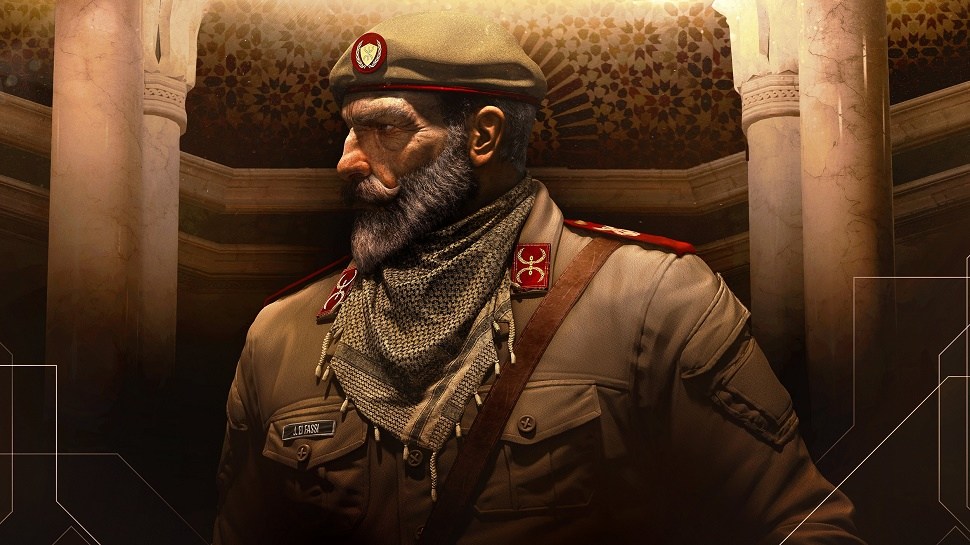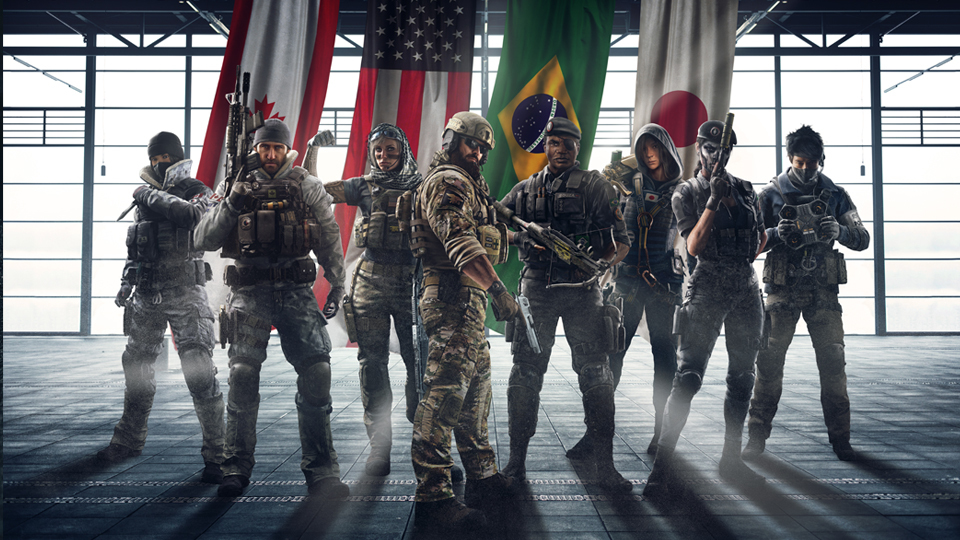Rainbow Six Siege caster says Ubisoft, players must do more to curb toxicity
Rainbow Six Pro League caster Parker “Interro” Mackay took to Twitch to lay out what should be done about toxicity in-game.
Parker "Interro" Mackay is a prominent member of the Rainbow Six Siege community and well-known ambassador for the game. He’s not an Ubisoft employee, but rather works for ESL to professionally cast Pro League matches and streams on his own time. In a Jan. 13 stream, Mackay laid out his suggestions for curbing the harassment and griefing that plagues some of Siege's millions of daily players:
- More accountability and proper punishments for offenders
- A forgiveness system for teamkilling and mirrored team damage
- Better replay tools and a CS:GO-like monitoring program
- A better ruleset for Casual

Accountability
The moment you try to address systemic issues with gaming and the toxic culture ... what you find is this unhelpful sort of people who label everything as some SJW, snowflake-ass, safe space garbage.
—Interro
Mackay believes that Siege is missing key features and policies that would improve the game’s murky culture, but as he points out, Ubisoft isn’t the only one responsible for its dirty house—after all, we live here too. “It’s very frustrating to talk about this in any real mature capacity,” Mackay said, “because there’s a huge portion of people online who, the moment you start talking about suspensions and bans for inappropriate words or racism or sexism ... there is a very vocal minority who immediately take to the stockades and start screaming about censorship.”
For much of 2018, Ubisoft worked on its tools for dealing with toxicity. In July, a chat filter was activated that imparted an instant temporary ban to players who used racial or homophobic slurs in-game. Later in the year, the system was tweaked to instead block offending words from going through and flag it for manual review to avoid false positives. The teamkilling policy was also changed to ban players after two teamkills and lock them out of any matchmaking. In each of these cases, the backlash from the community was intense.
“The moment you try to address systemic issues with gaming and the toxic culture that comes with anonymity, a lack of repercussions, et cetera, what you find is this unhelpful sort of people who label everything as some SJW, snowflake-ass, safe space garbage. And those people are almost as bad and as unhelpful as the people whose behavior in-game is lessening your experience,” Mackay said.
Dropping out of a Casual match has no repercussions.
—Interro
Mackay pleaded to viewers to call out harassment and abuse in-game. “If you’re in a game and there’s somebody being harassed for the way they sound, their accent, maybe they have a lisp, maybe a stutter, maybe they sound like they’re a certain gender or culture … speak up. Don’t be a bystander,” he said. “You might not stop it in its tracks, but you show support to the person who needs it.”
One of the most immediate ways to discourage harassment, Mackay believes, is to improve the experience of Siege’s biggest streamers. Streamers are often victims of stream sniping and easier targets for teamkilling and general griefing. Ubisoft has been known to “live ban” griefers during a streamer’s match, but this usually happens after the griefer has already left or the damage is done. “There ought to be one [Ubisoft employee] actively monitoring the streams to take care of problematic members of this community,” Mackay said.
He believes that, if Ubisoft sets a better example for the most visible players of the game, there would be a ripple effect. “If there are people going into streamers’ games being terrible people and there is immediate punishment for these people, full bans handed out … that will have a reverberation across the community.”
Keep up to date with the most important stories and the best deals, as picked by the PC Gamer team.
Better tools
Mackay sees plenty of opportunity for Ubisoft to implement features that make griefing harder. First and foremost, a system for forgiving teamkills that lets someone off the hook for legitimate accidents or punish true griefing. Players have been asking for a similar feature as far back as the game’s release, but Ubisoft has never commented on it.
Another suggestion is for damage to be mirrored back to the attacker when friendly fire is administered. “It takes the power away from the person who is trying to do you harm. The trolls can’t just shoot you and immediately see results,” he said. Mackay suggests there be a ceiling for how much team damage, not only kills, a player can rack up before they’re kicked from the match.
No single new feature or policy will be the silver bullet that ends harassment of all types.
For Casual, he believes the mirrored damage rules would solve many common problems immediately. But he also sees other issues with the mode that need solving, like how players don’t seem to treat it like a legitimate mode. “Casual sucks for a number of reasons: the timer is too long, the games are too short, there’s no disincentive to leave or drop out, no disincentive to not troll, there’s no incentive to play well. And the ruleset is pretty lousy,” he said.
Mackay argues that Casual’s ruleset should more closely resemble Ranked, which has a shorter match timer and penalizes players for leaving mid-match. Dropping out of a Casual match has no repercussions, despite the impact it has on your team’s success and the real possibility that another player won’t join to fill their slot. In theory, a Casual mode that presents itself as more competitive and less “lawless,” as Mackay puts it, would be less prone to leavers and trolls.

One way to catch cheaters and griefers that can’t be overstated are proper replay tools that allow players to watch past matches from the perspective of all players. This, Mackay says, is something Siege desperately needs (and if leaks are to be believed, could be in the works). Suspicion of cheaters or griefing is a constant of Siege. Often, it’s unclear by watching a killcam if that one-in-a-thousand kill through a soft wall was the result of crazy luck or part of a pattern that reveals hacking. As a consequence, Siege players tend to be a bit paranoid about their opponents, often reporting them based on nothing but a gut feeling.
A more ambitious version of this system would also include a program similar to CS:GO’s Overwatch, which hand-picks trusted players with good track records to manually investigate reported players and hand out bans. This is a technically sophisticated solution that requires a replay editor, but Mackay hopes for it nonetheless. He acknowledges that no single new feature or policy will be the silver bullet that ends harassment of all types, but it is worth pursuing.
Much of what Mackay is pushing for aren’t wholly new concepts, but promising steps for improving the health of the game. Arguably more significant is seeing proper pushback on Siege’s (and gaming’s in general) toxic culture of verbal abuse and bystanderism from one of the most recognizable faces in the community.
“I was hesitant to speak on the topic but felt that it would be beneficial to try and present some solutions to the problems that are unique to Rainbow Six. The reception thus far has been really positive and I've received a slew of supportive comments, DMs, and tweets about both the tone and point of view that I took,” Mackay told me via email. “I'm glad it's brought some issues to light that the average player may not have considered and I'm hopeful that the conversation will inspire some changes within the game.”

Morgan has been writing for PC Gamer since 2018, first as a freelancer and currently as a staff writer. He has also appeared on Polygon, Kotaku, Fanbyte, and PCGamesN. Before freelancing, he spent most of high school and all of college writing at small gaming sites that didn't pay him. He's very happy to have a real job now. Morgan is a beat writer following the latest and greatest shooters and the communities that play them. He also writes general news, reviews, features, the occasional guide, and bad jokes in Slack. Twist his arm, and he'll even write about a boring strategy game. Please don't, though.

